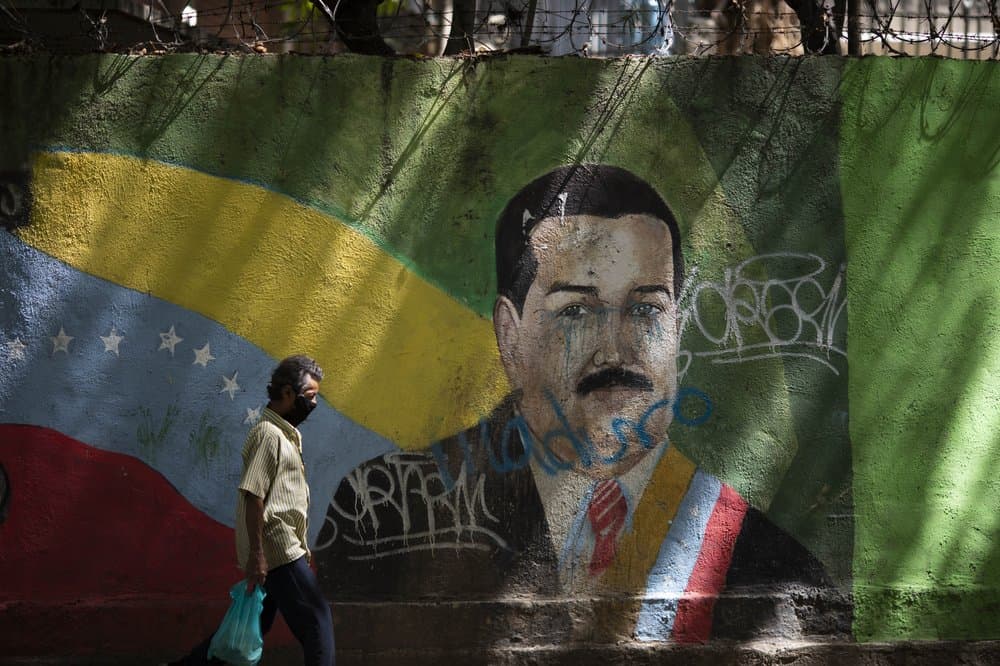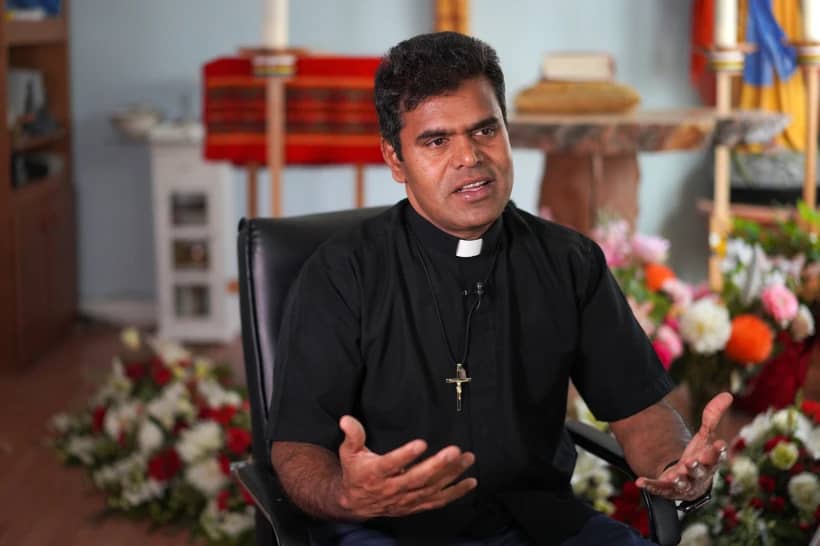ROSARIO, Argentina — At the closing of the plenary assembly of the Venezuelan bishops, the prelates released a pastoral exhortation calling for a change in the political leadership and denouncing the “violent repression” by the government of those demanding the respect of human rights.
“Accompanying and interpreting the sentiment of the majority of Venezuelans,” the bishops’ message reads, “we once again insist that the country needs a radical change in political leadership, which requires sufficient integrity, rationality, and love from the government for the country to stop this sea of suffering of the Venezuelan people.”
Venezuela’s President Nicolás Maduro took over from Hugo Rafael Chávez when he died in 2013, and he and his United Socialist Party (PSUV) have often been at odds with the bishops over the deteriorating state of the country.
In their Jan. 11 statement, the bishops also call for freedom of action for charitable organizations and NGOs so they can help provide help in solving the various problems facing local communities.
“We suffer in our country the dire consequences of an economic model, imposed by a communist regime and ideology that has impoverished us all, especially the weakest,” the bishops wrote in a statement released Monday.
“On the other hand, we see a minority group of Venezuelans who are getting richer to the detriment of the majority of the population.”
The bishops also say Venezuela is “suffering from unstoppable inflation and a devaluation that has impoverished the entire population.”
The currency instability in Venezuela, technically defined as hyperinflation, began in 2016 and though it improved slightly at the end of 2020, is the worst registered thus far in modern history. The average inflation rate in Venezuela amounted to about 438.12 percent in 2017 compared to the previous year, the last year reliable statistics were available.
The 2019–2020 National Survey of Living Conditions published by researchers at Andrés Bello Catholic University in Caracas showed that poverty levels in Venezuela spiked during 2019, officially rendering it the poorest country in Latin America and the Caribbean.
In 2019, the average income in Venezuela was 72 U.S. cents per day. The report found 96 percent of Venezuelans live in poverty and 70 percent live in extreme poverty.
The bishops also wrote about the millions of people who have fled Venezuela since 2013, noting that “when the children of a nation decide to leave their country, it is because, besieged by precariousness, they have reached an extreme situation in which they have no other way than to assume the challenge and the risk of facing the unknown.”
In their statement, they also reference the installation of a new National Assembly, after elections held late last year.
The opposition – which controlled the assembly – denounced the elections as fraudulent, and vowed to continue meeting as the “legitimate” representative of the people.
The bishops said the new National Assembly “lacks a democratic foundation,” adding the vote took place “in the midst of a revenge,” and a “disqualification of leaders of the opposition, their intimidation and threats of persecution.”
The prelates said the new assembly “does not help to solve the problems of the people or create confidence for the recovery of the country.”
The prelates also spoke in a more general way about the COVID-19 pandemic and its affect on the country and other nations.
“The world is experiencing moments of turbulence, confusion and unease due to the current health emergency,” the bishops wrote in the message. “We are witnessing how entire nations see their forces, dreams and projects upset.”
The bishops said the pandemic has allowed humanity to realize that those who believed they were invincible are not, because they show their “inability to act together.”
“However, we have also been able to verify great efforts to express solidarity, service and mutual concern through professionalism and living the Christian vocation to holiness in charity,” they continued. “A clear example of the latter can be found in so many doctors, nurses, health personnel and volunteers who, with a high dose of heroism, have been on the side of those most in need and those infected by the pandemic.”
Due to the health emergency, the bishops met virtually Jan 7-9, and released their final message two days after it concluded.
A day before the meeting began, Pope Francis sent a personal message to Cardinal Baltazar Porras Cardozo of Caracas on the feast of the Epiphany, in which he asked the prelate to work “tirelessly” for his people, while expressing “concern for the arrogance of the powerful and the growing poverty” in Venezuela.
On Sunday, the Archdiocese of Caracas denounced the increasing limits on the freedom of the press in the country after several broadcast networks, newspapers and web portals had their offices raided and their equipment seized by the Maduro regime.
On Twitter, the archdiocese expressed its solidarity with journalists.
“Freedom of expression is a synonym of democracy. If the media is transgressed, as a consequence, democracy is transgressed,” the archdiocese said.
Follow Inés San Martín on Twitter: @inesanma













